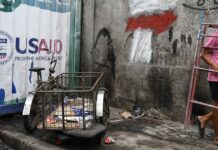Over the years, the programs have been effective. For instance, a four-year partnership between the US and the Philippines, which started under the first Trump administration and ended in 2021, helped protect hundreds of children: More than 350 kids were rescued and supported and almost 100 potential criminals arrested. The new cuts also come as record levels of online child sexual abuse imagery are being discovered.
“Victims and perpetrators alike originate from diverse regions and countries, underscoring the necessity for continued international engagement and coordinated efforts to address these crimes comprehensively,” says an employee of a South American child protection group that works to combat trafficking and online sexual abuse. The organization, like others in this story, was granted anonymity to speak given the sensitive nature of the work and uncertainty about future funding. “The interruption of these funds inevitably limits the scope and reach of these critical services,” it says.
One person, who works for an organization running multiple child protection projects, says operations in one southeastern European country have been widely disrupted. Within the country, the organization’s projects have 147 victims of trafficking in its care, the person says. “The ongoing pause and potentially the cessation of funding would have significant and negative impact on our capacity and ability to provide essential services to these victims who are in fragile stages of their recovery; some of whom are in ongoing programs for psycho-social counseling related to their trauma,” the person says.
Multiple members of LWOB say children are being put further at risk in the projects it runs in East Africa. “These children may not be identified, the practices to reduce their trauma aren’t being supported right now,” says Ryckman. “Even if they are identified, they may be put in a pipeline where they are going to have to face ongoing interviews about their trauma or face their traffickers again.”
LWOB has, along with partner organizations, identified around 200 victims of human trafficking in Tanzania, with the majority referred to safe houses, says Lulu Makwale, a victim service coordinator at Lawyers Without Borders. “Most of the funding for the safe houses has been paused, meaning the services and the needs of the victim are also being paused too,” Makwale says. She says the organization has been linking up shelters to investigators up until now. “Victims may not be connected well now to the law enforcement,” Makwale says.
As well as supporting victims directly, many of the efforts also provide training or technical assistance to police forces, allowing them to better investigate crimes. One program listed on the State Department’s list of counter-trafficking funding says it is providing training to combat online child sexual exploitation for 10,000 police officers, prosecutors, and judges in 100 countries.
The person with links to work in a European country says their organization has 74 investigations into traffickers ongoing, plus 66 prosecutions that are underway. They say that the funding changes will have a “significant and negative impact on these criminal trials” and the safety of people who may give evidence in the cases.
Ryckman, from Lawyers Without Borders, says the organization recently completed work on an online database for identifying victims and tracking online child exploitation in Kenya. While the database is functional, Ryckman says, future work to train people has been paused, and there will be a slower uptake of the system. “I do believe it will be used, and it will be extremely useful,” Ryckman says. “But these victims are there now. They shouldn’t have to wait.”







